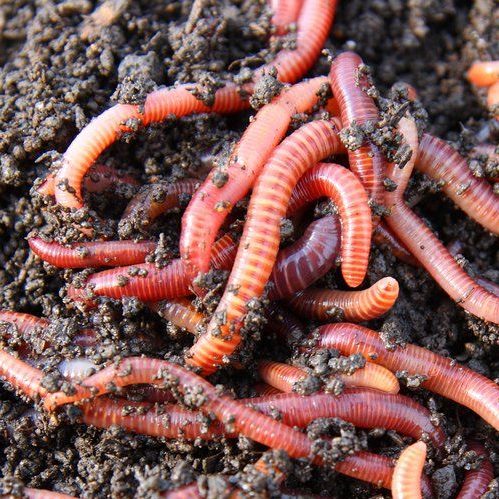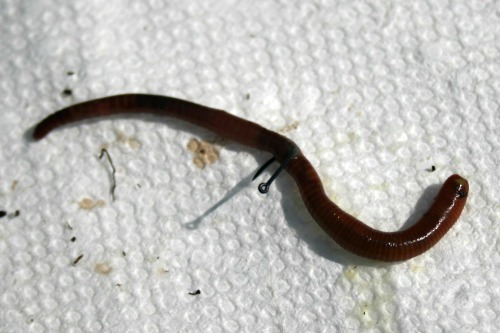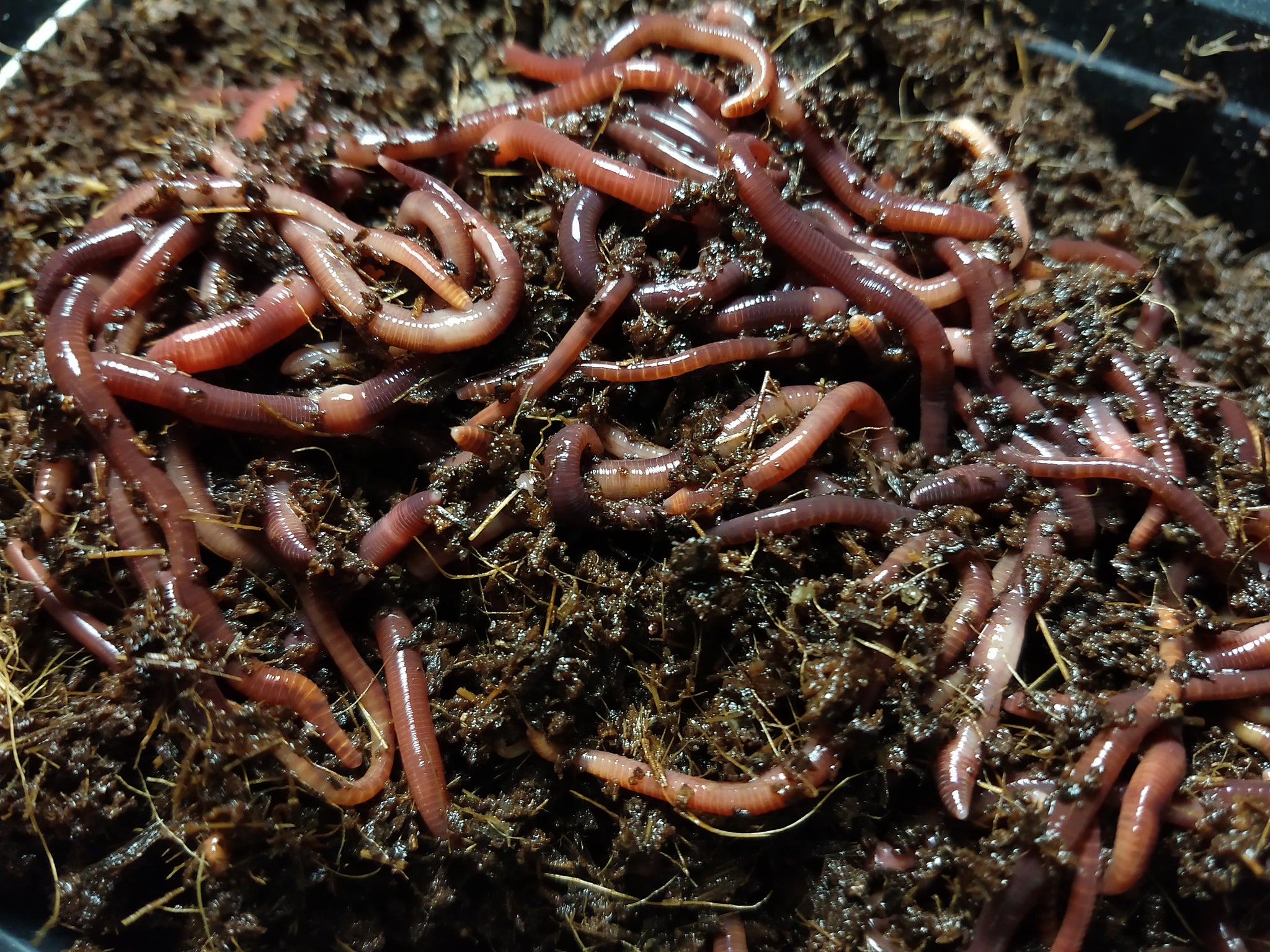Red Wiggler Express: A Trusted Source for Fresh Worms and Bait
Red Wiggler Express: A Trusted Source for Fresh Worms and Bait
Blog Article
Unlock the Keys of Red Wigglers: Your Guide to Composting Success
The integration of red wigglers into composting methods provides a substantial possibility for boosting dirt health and promoting sustainability. Understanding their demands and actions is critical for optimizing their capacity, from establishing up a proper worm container to feeding them the right products.

What Are Red Wigglers?
(Red Wiggler Express)Red wigglers, medically referred to as Eisenia fetida, are a varieties of earthworm mostly utilized in composting due to their remarkable capacity to break down raw material effectively. These worms are defined by their reddish-brown coloration and a segmented body, typically gauging between 3 to 4 inches in length. Unlike other earthworm varieties, red wigglers prosper in abundant, organic settings, making them excellent for vermicomposting systems.
Belonging To The United States And copyright, they are commonly located in rotting leaves and compost heap, where they play a critical function in nutrient recycling. Their adjustment to staying in a moist, cardiovascular setting allows them to take in huge quantities of natural waste, damaging it down into nutrient-rich castings that boost soil health and wellness.
Red wigglers replicate swiftly, with a solitary worm qualified of creating several cocoons each week, each including numerous hatchlings. Recognizing the biology and actions of red wigglers is necessary for optimizing their potential in composting applications.
Advantages of Utilizing Red Wigglers
Using the power of red wigglers in composting provides numerous benefits that boost soil wellness and promote sustainable waste management. These impressive microorganisms effectively break down organic matter, transforming kitchen area scraps and yard waste right into nutrient-rich vermicompost. This completed item is exceptionally advantageous for plant growth, as it improves soil structure, enhances dampness retention, and enhances nutrient availability.

(Red Wiggler Express)Additionally, the existence of red wigglers in your composting system can increase the composting procedure, producing high-grade garden compost in a portion of the time contrasted to conventional approaches. The castings generated by these worms are additionally including advantageous bacteria that further enhance the dirt ecological community.
Establishing Up Your Worm Bin
Creating an effective worm bin is a simple procedure that can substantially enhance your composting initiatives. The initial step is picking a suitable container. Worm containers can be made from plastic storage bins, wood boxes, or readily offered worm bins. Ensure the container has appropriate drainage and ventilation holes to preserve ideal dampness degrees and air flow.
Following, prepare the bed linens material, which offers as the worms' habitat. A mix of shredded newspaper, cardboard, and coconut coir functions well, offering a comfy setting for the worms.

Feeding Your Red Wigglers
To make sure the wellness and efficiency of your red wigglers, it is vital to offer them with a well balanced diet that fulfills their dietary requirements. Red wigglers prosper on a diverse array of organic products, which not just supply necessary nutrients but also advertise efficient composting.
Beginning by integrating cooking area scraps such as vegetable peels, fruit cores, and coffee grounds. Stay clear of citrus fruits, onions, and garlic, as these can be harmful to worm health. Furthermore, introduce shredded paper, cardboard, and completely dry fallen leaves to produce a well-aerated setting.
Feeding frequency need to be kept track of; usually, worms can take in half their body weight in food weekly. It is crucial to prevent overfeeding, as excess food can lead to unpleasant smells and attract bugs. An excellent practice is to include food in tiny quantities, allowing worms to process it prior to introducing much more.
Keeping moisture levels is additionally vital; the bed linen needs to perspire however not soaked. Lastly, make certain to routinely inspect the temperature level and pH levels of the bin to make sure an optimum environment for your red wigglers, eventually improving their composting performance.
Harvesting and Utilizing Compost
An effective composting procedure with red wigglers finishes in the abundant, dark compost known as vermicompost, which can considerably enhance dirt wellness and plant development. Gathering this nutrient-dense material usually happens every three to 6 months, depending upon the size of your system and the amount of natural issue being processed.
To harvest, delicately separate the compost from the worms and any kind of undecomposed products. One efficient method entails relocating the contents of the container away have a peek here and adding fresh bed linens and food to the void, encouraging the worms to move. After a few days, the compost can be accumulated from the opposite side.
It is vital to make use of vermicompost properly to maximize its advantages. It can be used as a leading dressing for yard beds, blended into potting dirt, or made right into a nutrient-rich liquid fertilizer known as "worm tea." This application technique helps to supply necessary nutrients directly to plant origins, promoting much healthier growth. By integrating vermicompost into your gardening regimen, you not just recycle organic waste however also produce a flourishing ecological community that supports lasting gardening methods.
Conclusion
In summary, red wigglers work as extraordinary allies in composting initiatives, transforming organic waste into nutrient-rich vermicompost (Red Wiggler Express). Their special organic qualities and effective waste handling capacities contribute considerably to lasting gardening techniques. By recognizing the optimal problems for their habitat, feeding demands, and compost harvesting strategies, garden enthusiasts can improve dirt health and wellness and advertise plant vigor. Accepting vermicomposting not just reduces garbage dump waste however additionally cultivates an extra eco responsible approach to gardening and source monitoring.
Report this page